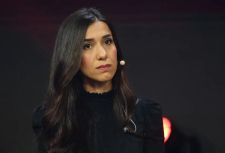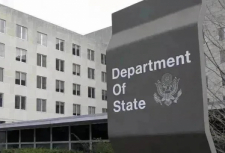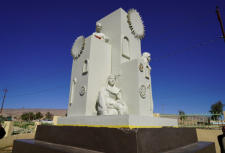What are the Yezidis silent about?

Internet access and the "gender gap" for Yazidi girls
Most often, due to the cultural factor, Yazidi girls are exposed to a "gender gap" in the development of new technologies: for example, to the Internet. Many of you who read this article have repeatedly come across the fact that Yazidi girls are not allowed to use the Internet when the situation with young men is different. The reason for this in marginal families is simple: "girls using the Internet "spoil" and become wayward." As such, waywardness scares such families, as they see it as a threat to the patriarchal foundation. Also, in addition to fathers or brothers, access to the Internet is often prohibited by mothers themselves. The logic in this is also simple, most often women in such families are afraid of their husbands or are jealous of the freedom that their daughters can get.
Many turn a blind eye to the fact that the ban on access to the Internet is a violation of human rights since they are not aware of the same human rights.
I would like to note that such Yezidi girls from 16 to 25 years old cannot access the Internet, most often parents explain this prohibition in this way: "if you get married, if your husband gives you the right to use the Internet, then use this right." Often, such marginal families give their daughters in marriage to the same marginal families. Consequently, many girls, even after marriage, do not get access to the Internet only because "the Internet is evil," as the patriarchal family foundation claims.
Access to and use of the Internet is a major cross-sectoral issue. It's not just about technology — it's about the latest hardware or an advanced application. The Internet is increasingly playing a central role in society, and some suggest that the digital revolution may promise “jump-start” access to economic and social change.
Banning Yazidi girls from the Internet has big consequences for them. One of the consequences is social asceticism, because of which girls cannot communicate normally with their peers who have access to the Internet in the future. These actions, namely such prohibitions for a girl, have disastrous consequences in terms of modern development, both educational and social.
A timely example of this catastrophe is the pandemic. She identified a link between the Internet and gender equality in education. The Internet can improve the quality of education by opening doors to information and learning opportunities both in and out of classrooms. But since the COVID-19 pandemic has moved many aspects of education online around the world, the lack of connectivity is not only an inconvenience, it is a crisis. Currently, there is not enough complete data to fully understand the impact of COVID-19 on the education of Yazidi girls, but one thing can be emphasized for sure, the situation will be critical.
As we can see, there are enough problems in Yezidi marginal families, and we Yezidis should talk about this more often, if we continue to turn a blind eye to such human rights violations, then we are no better than those who violate the same human rights in this way. Yazidi women and girls need access to technology — and the skills to use it — so that they are not left behind in an increasingly digital world.
What are the Yezidis silent about?

Internet access and the "gender gap" for Yazidi girls
Most often, due to the cultural factor, Yazidi girls are exposed to a "gender gap" in the development of new technologies: for example, to the Internet. Many of you who read this article have repeatedly come across the fact that Yazidi girls are not allowed to use the Internet when the situation with young men is different. The reason for this in marginal families is simple: "girls using the Internet "spoil" and become wayward." As such, waywardness scares such families, as they see it as a threat to the patriarchal foundation. Also, in addition to fathers or brothers, access to the Internet is often prohibited by mothers themselves. The logic in this is also simple, most often women in such families are afraid of their husbands or are jealous of the freedom that their daughters can get.
Many turn a blind eye to the fact that the ban on access to the Internet is a violation of human rights since they are not aware of the same human rights.
I would like to note that such Yezidi girls from 16 to 25 years old cannot access the Internet, most often parents explain this prohibition in this way: "if you get married, if your husband gives you the right to use the Internet, then use this right." Often, such marginal families give their daughters in marriage to the same marginal families. Consequently, many girls, even after marriage, do not get access to the Internet only because "the Internet is evil," as the patriarchal family foundation claims.
Access to and use of the Internet is a major cross-sectoral issue. It's not just about technology — it's about the latest hardware or an advanced application. The Internet is increasingly playing a central role in society, and some suggest that the digital revolution may promise “jump-start” access to economic and social change.
Banning Yazidi girls from the Internet has big consequences for them. One of the consequences is social asceticism, because of which girls cannot communicate normally with their peers who have access to the Internet in the future. These actions, namely such prohibitions for a girl, have disastrous consequences in terms of modern development, both educational and social.
A timely example of this catastrophe is the pandemic. She identified a link between the Internet and gender equality in education. The Internet can improve the quality of education by opening doors to information and learning opportunities both in and out of classrooms. But since the COVID-19 pandemic has moved many aspects of education online around the world, the lack of connectivity is not only an inconvenience, it is a crisis. Currently, there is not enough complete data to fully understand the impact of COVID-19 on the education of Yazidi girls, but one thing can be emphasized for sure, the situation will be critical.
As we can see, there are enough problems in Yezidi marginal families, and we Yezidis should talk about this more often, if we continue to turn a blind eye to such human rights violations, then we are no better than those who violate the same human rights in this way. Yazidi women and girls need access to technology — and the skills to use it — so that they are not left behind in an increasingly digital world.


























